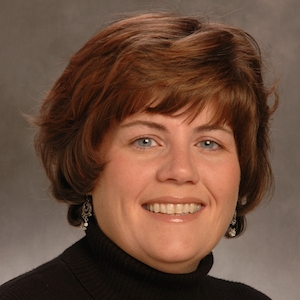
Common Core educational standards can bring students and the teaching profession to new heights.
In 2007, when I had my first conversation about the Common Core State Standards (CCSS), I was firmly against them. Over the past 7 years, as I studied and talked with colleagues using the Standards in their classrooms, my opinion changed. I am now a strong proponent of common standards.
The CCSS first began with the National Governor’s Association and the Chief State School Officers who saw a need to “raise the playing field” across states. While there are many reasons for the drive toward uniform standards, it is important to point out that the standards were not motivated by a drive to test students, as that was already required. Under the No Child Left Behind (NCLB) law, states already had to test students annually and publicly report the disaggregated data. Yet also under NCLB, states still decided what standards and tests to use, creating a perverse incentive to keep things easy so that a state did not look bad.
The best experts and practitioners in the fields of math and English language arts wrote the CCSS. Among them were members from the National Education Association (NEA), the American Federation of Teachers, the International Reading Association, and the National Council of Teachers of Mathematics. I’ve heard NEA President Lily Eskelsen Garcia proclaim her love for the Standards, even calling attention to the CCSS app on her phone.
I reviewed the standards for my grade level and spoke extensively with other educators. The standards are rigorous and require teachers to teach differently. Given the time to fully understand the standards (often referred to as “unpacking”), the time to work with our colleagues to develop and refine our lessons and assessments, and the need for a voice in generating high quality professional development during this transition, these standards will eventually provide a higher level of student learning across our country.
The Common Core standards hold tremendous potential for the education profession. One of the defining elements of a profession is the set of common practices that everyone in the profession shares. Consider how a Certified Public Accountant must learn common accounting standards, or doctors must learn how to remove an appendix. The CCSS have the potential to serve as a pillar of pre-service education and ongoing professional development. It will no longer matter if a teacher went to college in Iowa but wanted to teach in California; that teacher’s training will provide a deep understanding of how to teach in a classroom anywhere.
The CCSS may also help us develop uniform licensing procedures for educators. We need to get rid of the cumbersome hoops that teachers have to jump through when they want to teach in another state. If the standards we are striving to meet are uniform, why can’t the license for teaching them be portable across state lines?
Common standards already provide a positive impact for students who move frequently. Families can be comforted knowing that their 3rd grader moving from Kentucky to Ohio will learn the same set of standards at the same high level.
The CCSS provide a common language for teachers to use across district and state lines. Various types of information technology – Twitter, Pinterest, webinars, and other discussion platforms – provide an accessible medium for teachers to share lessons and write new curricula. Rather than wait for publishers to develop new materials, teachers are designing and delivering quality professional development and teaching resources. Teachers can use Open Educational Resources (OER) and other databases to make high quality lessons.
I would be remiss if I did not address why the CCSS have become a target of scorn: implementation. The CCSS were rushed into classrooms on a political timeframe rather than an educational one, and they were mashed in with a hodgepodge of old and new assessments. Then, district and state education officials ordered school administrators to evaluate teachers using poorly designed evaluation systems aimed at catching “bad” teachers rather than enhancing the practice of professional educators. Many of these evaluation models used unproven value-added measurements and included test score percentages that were pulled from thin air. In other words, it was like presenting the best cut of juicy grilled steak on a dirty trash can lid and saying “bon appetit!”
It’s not the Common Core standards that are the problem: it’s the way the standards were implemented and how they were inappropriately paired with assessments and evaluation before teachers even had a chance to understand them fully.
While implementation is a mess in too many places, not every state has botched it. Kentucky is an example of transformation done correctly. That state thoughtfully laid out a transition plan that treats teachers – and their unions – as a tremendous asset. Kentucky officials involved all stakeholders in the development and implementation of a realistic timeline that uses the professional expertise of educators as leaders. Dr. Terry Holliday, the Kentucky Commissioner of Education, has said, “Strong relationships are the secret to our work here in Kentucky.”
Standards aren’t new. They are part of the evolution of education. In 1990, I used the Omaha Instructional Process as my roadmap. Later, statewide standards guided my teaching. Now, the CCSS provide a more detailed and rigorous road map that will help me ensure that my students meet their life goals. It’s kind of like moving from a hand drawn map to Rand McNally to Google Maps (with street view!).
My colleague, Katie Taylor, recently shared with me a story of a teacher who called into National Public Radio to discuss her state’s decision to repeal CCSS. The teacher cried during the interview because she knew that the only way her students could escape poverty was to go to a good college. With her state repealing the Standards, she felt her students would fall even further behind and they never would have the chance.
Reflecting on what she heard, Katie said, “it was really poignant and it showed to me that the reason we want these higher standards is not for ourselves, but for students and for their futures.”
That’s why we become teachers: to create a better future for our students. The Common Core State Standards are one of the best tools we can use to achieve that goal.
This essay is part of a seven-part series, The Debate Over the Common Core State Standards.




